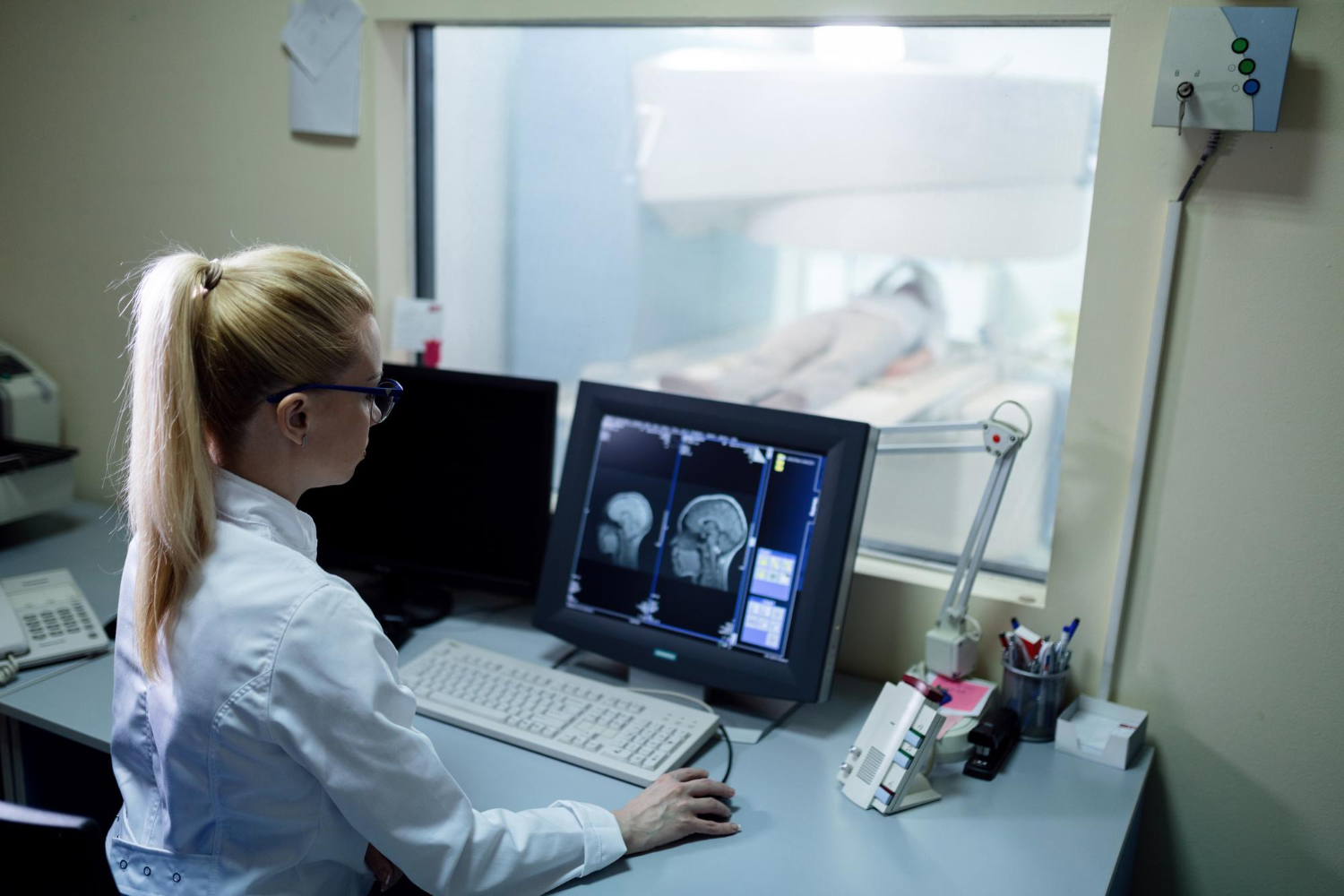MRI (Magnetic Resonance Imaging) scans are a common and valuable tool in the field of medical imaging. They provide detailed images of the body’s internals without using radiation.
MRI scans diagnose a wide range of medical conditions, including:
- Brain tumors
- Heart disease
- Spinal cord injuries
- Bone and joint problems
- Cancer
- Infections
What Can MRI Scans Detect?
MRI scans can catch a wide range of diseases within the body. They can picture soft tissues such as muscles, ligaments, organs, and the brain. Conditions and areas that can be detected through MRI include:
- Brain and spinal cord disorders: MRI can identify tumors, multiple sclerosis (MS), stroke, and other neurological conditions.
- Joint and musculoskeletal issues: It helps diagnose conditions like torn ligaments, cartilage damage, arthritis, and herniated discs.
- Abdominal and pelvic abnormalities: MRI can detect tumors, cysts, and abnormalities in organs such as the liver, kidneys, and reproductive system.
- Breast abnormalities: MRI scans are helpful in evaluating breast tissue and detecting breast cancer.
- Vascular conditions: MRI angiography provides detailed images of blood vessels, helping diagnose conditions like aneurysms, blockages, and vascular malformations.
How Do MRI Scans Work?
MRI scanners utilize a magnetic field and radio waves to create explicit pictures of the body.
Here’s a simplified explanation of how they work:
- When you undergo an MRI, you’ll lie on a table that slides into a tube-shaped scanner. A decisive magnet aligns the hydrogen atoms in your body.
- The MRI machine emits radio waves that interact with the aligned hydrogen atoms. Causing them to erupt signals. These signals are obtained by the scanner and processed into clear images.
- The signals are changed into cross-sectional shots. Which are regarded by the radiologist. These images deliver clear visualizations of the organs.
What to Expect During an MRI Scan?
Before the procedure, you have to remove metal objects and change into a hospital gown. You’ll lie on the scanning table. And may receive a contrast dye to enhance the visibility of certain tissues. The table will then glide into the MRI machine. And you’ll need to remain motionless during the scan. The machine may produce loud noises. But earplugs or headphones minimize discomfort.
Benefits and Safety of MRI Scans:
MRI scans offer numerous benefits, including:
- Detailed imaging of soft tissues
- No exposure to radiation
- Non-invasive procedure
- High-quality images for accurate diagnoses
MRI scans are generally safe. However, individuals with certain conditions or implanted devices may need to inform their healthcare provider beforehand. The technologists will provide guidance throughout the procedure.
MRI is a valuable diagnostic tool that can detect a wide range of conditions and abnormalities in the body. By understanding what MRI scans can detect and how they work, you can feel more informed and prepared for your own MRI experience. If you have any questions or need to schedule an MRI scan, contact Huntington Radiology Center in California. Our team of experts is dedicated to providing quality care and accurate imaging results.



